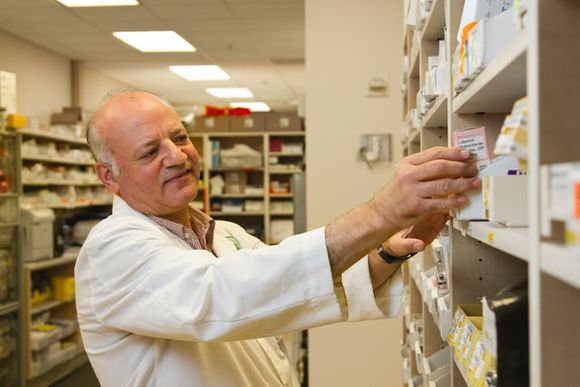Author: Rositsa Tashkova, Master of Molecular Biology and Microbiology
Indigestion or in medical language - dyspepsia [ref. 1], manifests itself as burning or gnawing pain in the upper half of the stomach that subsides and intesifies, but still most of the time it is felt.
Other symptoms are:
Usually dyspepsia is not considered a dangerous condition, but it can be a sign of a serious disease, such as gastric ulcer. Therefore, people who experience these symptoms and are over the age of 50 have recently lost weight for unclear reasons, have difficulty swallowing, severe bouts of vomiting, a feeling of a lump in the stomach, and especially if they notice black stools (in a bleeding ulcer), they should necessarily seek medical attention.
What causes dyspepsia
As we said, gastric ulcer [ref. 3] can be one of the serious causes of indigestion or dyspepsia. Another cause of the characteristic symptoms may be stomach acids or reflux, since some of the stomach acid is "returned" to the esophagus, and this causes burning chest pain.
Another serious cause may be a disease of the liver or pancreas [ref. 4].

Photo by Michał Parzuchowski on Unsplash
Some medications can also lead to dyspepsia, but in these cases it is reversible when the drug is discontinued. In these cases, the doctor may prescribe another, similar drug. An example of medications that can cause dyspepsia are some anti-inflammatory painkillers.
How to relieve the symptoms of indigestion yourself
There are a few things [ref. 5] that we can do to alleviate the symptoms of dyspepsia or indigestion before we have resorted to medication.
- If possible to reduce stress in our daily lives through relaxation techniques and enough sleep;
- Stop smoking;
- Avoid foods that we have found irritating our stomach (for example, fried, highly processed, fatty and spicy foods);
- Reduce alcohol, sodas, caffeine;
- If the cause of dyspepsia is gastric reflux (heartburn), it is good not to eat immediately before bedtime, as we can lift the upper side of the bed and sleep on a slight slope;
- Weight loss in overweight people can also help, since excessweght puts pressure on the abdomen and stomach, which leads to reflux;
- If we need to take anti-inflammatory painkillers for medical reasons, then after consulting a doctor and at her discretion, the amount of them may be reduced or another medication chosen. Drugs that lead to dyspepsia are ibuprofen, aspirin, ketoprofen, naproxen. A good alternative for pain is paracetamol, because it does not irritate the stomach.
- To eat less and more slowly, but more often - 6 times a day less, instead of 3 times;
- After consulting a doctor about the correct concentrations and compatibility with other drugs we take, mint, cumin and licorice can be used.
Dyspepsia treatments

Photo by National Cancer Institute on Unsplash
Depending on the causes of indigestion or dyspepsia, the doctor may approach the case differently. If the cause is infection with the bacterium causing ulcer - Helicobacter pylori [ref. 6], antibiotic treatmenta nd intake of antacids (medicines used to neutralize the acid in the stomach). This happens under close medical supervision and monitoring of the condition. It is essential that we take the medications exactly as prescribed, and the antibiotic should by no means be stopped prematurely, even if we feel better.
At the discretion of the doctor, especially if taking medication does not alleviate the condition, an endoscopic examination can be carried out, in which a camera is inserted into the stomach through a thin tube and the doctor can examine the condition of the mucous membrane.
Bowel condition can also be traced through an X-ray or computer ct scan.
Role of herbs in relieving symptoms of dyspepsia
There are several herbs that have been included in clinical trials for effectiveness and have given good results [ref. 11] in alleviating symptoms of dyspepsia and indigestion. They are discussed in detail in the article" 7 herbs that relieve indigestion and dyspepsia", and here we will only mention them.
These herbs are:
- basil (Ocimum basilicum),
- licorice (Glycyrrhiza glabra),
- Alma (Phyllanthus emblica),
- black cumin (Nigella sativa),
- greater celandine ( Chelidonium majus),
- ginger (Zingiber officinale),
- mastic resin ( Pistacia lentiscus) - gum mastic.
What is functional dyspepsia
Unfortunately, in many cases no apparent cause of dyspepsia is found, and then it is taken as a "functional dyspepsia" [ref. 7]. It occurs more often in women. Other risk factors for the onset of functional dyspepsia are physical or sexual harassment in childhood, anxiety and depression.
There is no scientific evidence for the effectiveness of alternative treatments for functional dyspepsia, but under medical supervision some herbs can be used to relieve symptoms.
Lowering stress and applying relaxation techniques is also important for dealing with functional dyspepsia, especially if the cause of it is psychological.
Some studies [ref. 9, 10] also found a genetic explanation of functional dyspepsia. According to them, the allel* 825T of the GNB3 gene plays a role. This gene is involved in the transmission of the signal, and this affects the sensory and motor function of the stomach and duodenum. Scientists believe that this allel probably contributes to the altered sensory and motor function, which are observed in functional dyspepsia. Therefore, people who have this allel, are probably prone to developing functional dyspepsia.
*The gene determines the appearance of agiven feature and may have different allele states (e.g. color gene, yellow and green alleles).
Read more:
What is the difference between a bacterium and a virus and what exactly is the cell
7 herbs that relieve indigestion and dyspepsia
How to recognize the ulcer of the stomach - causes, symptoms and treatment









